Cyclades
Authors: Bruno Cathala & Ludovic Maublanc
Publisher: Matagot / Asmodee
Year: 2009
review by

| x |
|
|
|
|
|
|
|
|
|
|
|
|
|
|
|
|
|
|
|
|
|
|
|
|
|
|
|
|
|
|
|
|
|
|
|
|
|
|
|
|
|
|
|
|
|
|
|
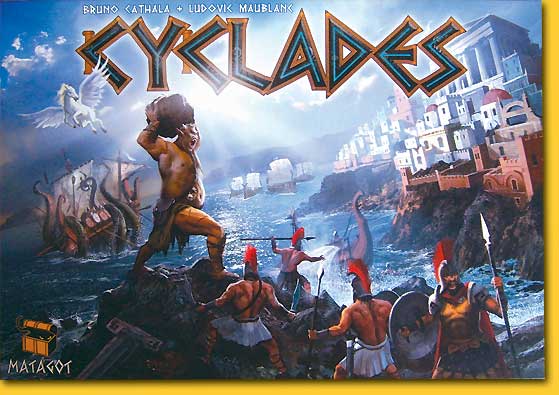 |
|
|
|
|
|
|
|
|
|
|
|
|
|
Trouble is stirring in Greece! The city states are using their precious remaining gold to turn to the various gods for help, trying to gain the gods’ favor for their own benefit. Various mythological creatures can either help or hurt them in their goal to build two metropolises. Whoever manages to do this first, wins.
|
|
|
|
|
|
|
|
|
|
|
|
|
| x |
|
|
|
|
|
|
|
|
|
|
|
|
|
|
|
|
|
|
|
|
|
|
|
|
|
|
|
|
|
|
|
|
|
|
|
|
|
|
|
|
|
|
|
|
|
|
|
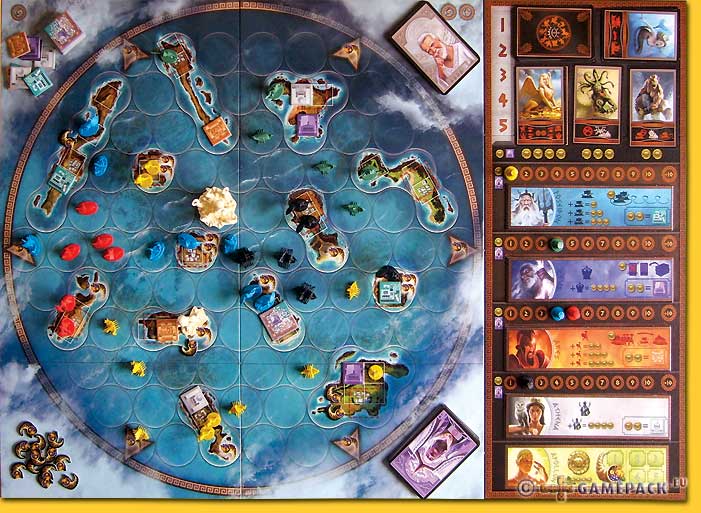 |
|
The modular game board is set up according to the number of players, with each player owning two islands at the start of the game, and some neutral islands available. Each player starts with two armies, two fleets and some gold. At the start of every round players get their income, which is one gold piece for every ‘horn of plenty’ depicted on their islands or below their ships.
|
|
|
|
|
|
|
|
| x |
|
|
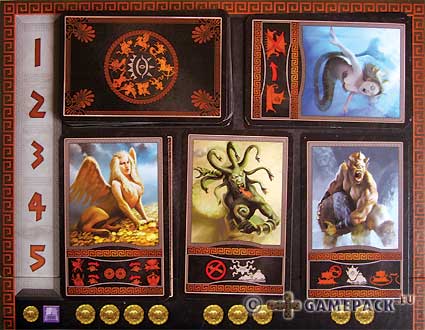 |
x |
|
Then they find out where they will be able to spend this hard-earned cash: a mythological creature is added to the display, en the gods that can be sacrificed to are put in a random order.
|
|
|
| x |
|
|
 |
|
|
|
| x |
|
|
|
|
|
|
|
|
|
|
|
|
|
|
|
|
|
|
|
|
|
|
|
|
|
|
|
|
|
|
|
|
|
|
|
|
|
|
|
|
|
|
|
|
|
|
|
|
So this order can change every round, and with less than five players one or more gods take a time-out and are not available to receive sacrifices that round. On a player’s turn he makes an offer to the god of this choice. If he overbids another player with his offer, the other player needs to move his bidding marker to another god right away. This goes on until all bidding duels (if any) have ended and each player has ended up with a god.
|
|
 |
|
|
|
|
|
|
|
| x |
|
|
|
|
|
|
|
|
|
|
|
|
|
|
|
|
|
|
|
|
|
|
|
|
|
|
|
|
|
|
|
|
|
|
|
|
|
|
|
|
|
|
|
|
|
|
|
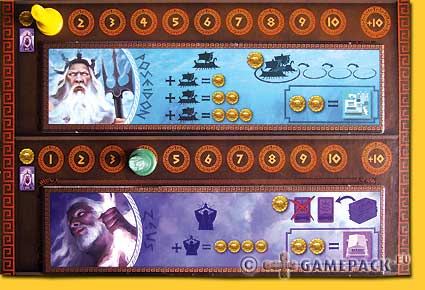 |
So what is the selection of the chock-full Greek mythology that we can deal with here? Among the gods who are making an appearance is obviously king of the gods Zeus, and joining him are Poseidon, Ares, Athena and Apollo. The player who gets Zeus’ favor can take a priest card, and if he wishes to spend four gold pieces to take a second one he can do so. Each priest lowers the amount the player needs to pay with subsequent bids, although he will always have to pay at least one gold. |
|
|
|
|
|
|
|
| x |
|
|
|
|
|
|
|
|
|
|
|
|
|
|
|
|
|
|
|
|
|
|
|
|
|
|
|
|
|
|
|
|
|
|
|
|
|
|
|
|
|
|
|
|
|
|
|
Athena brings in a free philosopher, also with the opportunity to buy another. Philosophers by themselves have no particular use – what a surprise! – but if someone manages to gather four of them he immediately places a metropolis on the board; sounds like there is quite some power in collective thought! Poseidon and Ares do the most to stir things up on the board: They allow a player to get, buy or move armies and fleets, with an instant fight occurring if they are moved to spaces containing enemy armies or fleets!
 |
|
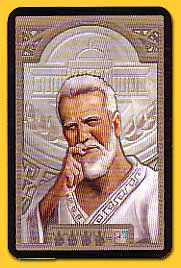 |
|
Let me think...
|
|
|
|
|
|
|
|
|
| x |
|
|
|
|
|
|
|
|
|
|
|
|
|
|
|
|
|
|
|
|
|
|
|
|
|
|
|
|
|
|
|
|
|
|
|
|
|
|
|
|
|
|
|
|
|
|
|
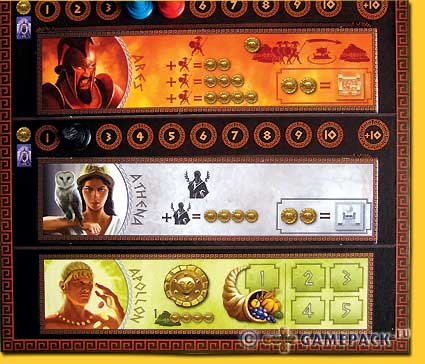 |
But even the more peace loving players can make use of Ares’ ability to move their armies to occupy neutral islands without bloodshed. Additionally all four of these gods give the ability to spend two gold to build their specific building. These buildings give benefits like extra strength in battles, or discounts, but there is an even better reason to build them: if someone has all four different buildings in their empire at any moment, so not necessarily on the same island, he immediately replaces them with a metropolis! |
|
|
|
|
|
|
|
| x |
|
|
|
|
|
|
|
|
|
|
|
|
|
|
|
|
|
|
|
|
|
|
|
|
|
|
|
|
|
|
|
|
|
|
|
|
|
|
|
|
|
|
|
|
|
|
|
|
Next to all these actions there is the possibility to recruit one or more mythological creatures like the Pegasus, the Minotaur or the always alluring Sirens. There is at least one creature available per round, initially costing four gold to hire with the price going down to two if they remain unused for several rounds. A creature that hasn’t even been able to appeal to the players for a price of two gold is removed from the board. These creatures can bring benefits like additional income, additional defense, or the opportunity to destructively send a couple of ships to the bottom of the ocean. Unsurprisingly, these ships usually belong to the other players!
|
|
|
|
|
|
|
|
|
| x |
|
|
|
|
|
|
|
|
|
|
|
|
|
|
|
|
|
|
|
|
|
|
|
|
|
|
|
|
|
|
|
|
|
|
|
|
|
|
|
|
|
|
|
|
|
|
|
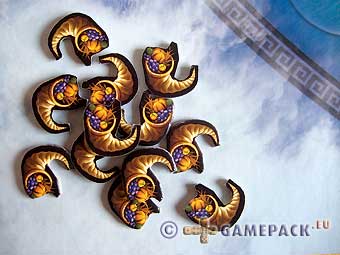 |
|
Then there’s Apollo. He is an exception in more than one way: first of all it doesn’t cost anything to impress him! Also he is the only god who can grant his favor to multiple players in the same round. He is available every round, even with less than five players, and is always last in the order of gods. The downside is that Apollo doesn’t give a whole lot of benefit: one gold piece to be exact, or four if the player is in so bad shape that he only has one island left; additionally the first player in the round to have chosen Apollo can place an additional horn of plenty on the board. This increases the income in later rounds, but is still of little help in the current round. Add to that the fact that Apollo doesn’t allow the player to hire any mythological creature whatsoever, and it seems clear that Apollo is usually a safety net for the player who felt that the bids got a bit too high for his tastes (or wealth!) this round.
|
|
|
|
|
|
|
|
| x |
|
|
|
|
|
|
|
|
|
|
|
|
|
|
|
|
|
|
|
|
|
|
|
|
|
|
|
|
|
|
|
|
|
|
|
|
|
|
|
|
|
|
|
|
|
|
|
|
When all players have performed their actions, they check if someone has met the victory condition, i.e. building two metropolises. Two ways to get a metropolis have already been mentioned: collecting four philosophers, or four different buildings. The third one should definitely not be overlooked though: simply conquering an opponent’s metropolis! If no one has met this victory condition play goes on for another round, with the player who ended up with Apollo starting the bidding in the next round.
|
|
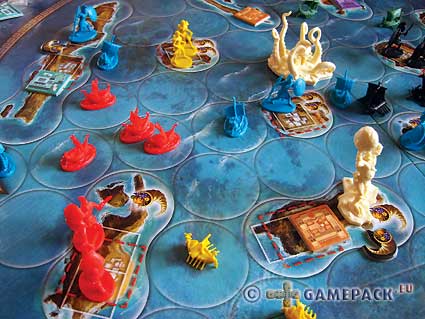 |
| x |
|
|
|
|
|
|
|
|
|
|
|
|
|
|
|
|
|
|
|
|
|
|
|
|
|
|
|
|
|
|
|
|
|
|
|
|
|
|
|
|
|
|
|
|
|
|
|
 |
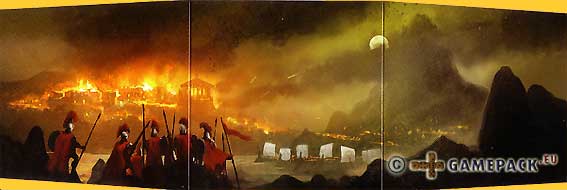 |
|
Eech player screen has its own terrific artwork
|
|
|
|
|
|
| x |
|
|
|
|
|
|
|
|
|
|
|
|
|
|
|
|
|
|
|
|
|
|
|
|
|
|
|
|
|
|
|
|
|
|
|
|
|
|
|
|
|
|
|
|
|
|
|
| x |
|
|
|
|
|
|
|
|
|
|
|
|
|
|
|
|
|
|
|
|
|
|
|
|
|
|
|
|
|
|
|
|
|
|
|
|
|
|
|
|
|
|
|
|
|
|
|
| x |
|
|
|
|
|
|
|
|
|
|
|
|
|
|
|
|
|
|
|
|
|
|
|
|
|
|
|
|
|
|
|
|
|
|
|
|
|
|
|
|
|
|
|
|
|
|
|
 |
|
|
|
|
|
|
|
|
|
|
|
|
|
|
|
|
|
|
|
|
|
|
|
|
|
|
|
|
|
|
|
|
|
|
|
|
|
|
|
|
|
|
|
| Cyclades is a bidding and development game, but one with a considerable amount of direct conflict: sinking each other’s ships and attacking each other’s islands is an important part of the game, and the possibility of acquiring a metropolis by conquering one from someone else is explicitly pointed out in the rules. |
|
|
|
|
|
|
|
| x |
|
|
|
|
|
|
|
|
|
|
|
|
|
|
|
|
|
|
|
|
|
|
|
|
|
|
|
|
|
|
|
|
|
|
|
|
|
|
|
|
|
|
|
|
|
|
|
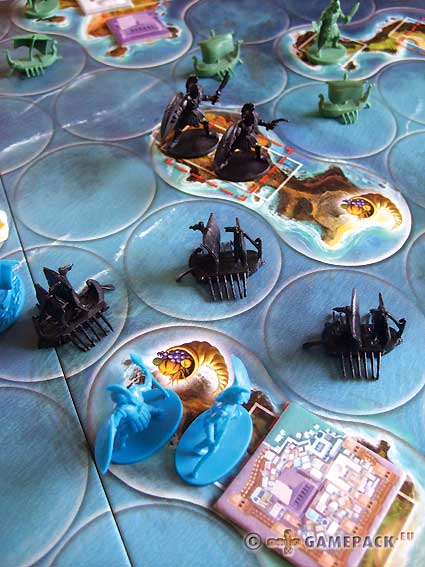 |
|
At the same time the conflicts are sufficiently limited: Ares, the major ‘bad guy’ in this respect, can only be picked by one player each round, and with less players he is not even available every round. So to keep bashing brainlessly for round after round is not possible. Players are also protected against elimination: it is only permitted to attack a player’s last remaining island, if success allows the attacker to get his second metropolis and thus win the game. Together with the extra abilities given by the various mythological creatures the player conflict in Cyclades seems nicely put together. It is also entirely possible to win without aggressive behavior by erecting buildings and gathering philosophers. But even then a player would need Ares to build up defenses against envious rivals. |
|
|
|
|
|
|
|
| x |
|
|
|
|
|
|
|
|
|
|
|
|
|
|
|
|
|
|
|
|
|
|
|
|
|
|
|
|
|
|
|
|
|
|
|
|
|
|
|
|
|
|
|
|
|
|
|
|
The bidding mechanism, which is similar to the one in ‘Amun-Re’, works well. A player will not want to bid too low for the god of his choice, because if he is overbid he will have to move to a different god and hope to be overbid there as well, in order to return to his ‘first choice god’! But nearly all available actions require gold, so an overly high bid will not leave the player with enough gold for the actions he was so anxious to perform… ‘Safety net’ Apollo also does his job: the player keeps all his gold and gets some extra, which leaves him better equipped to gain the favor of a more useful god next round.
|
|
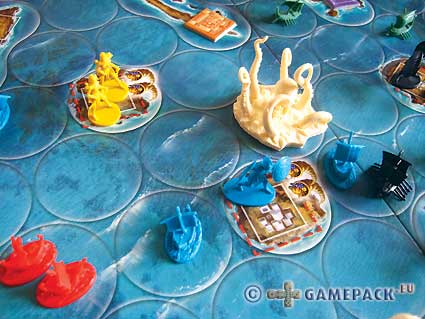 |
|
|
|
|
|
|
|
| x |
|
|
|
|
|
|
|
|
|
|
|
|
|
|
|
|
|
|
|
|
|
|
|
|
|
|
|
|
|
|
|
|
|
|
|
|
|
|
|
|
|
|
|
|
|
|
|
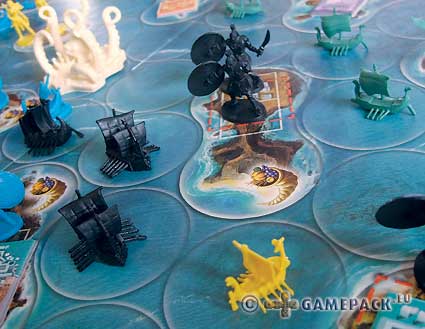 |
|
A point of criticism is that Cyclades can seem overly static at times; especially in a round where Ares is not available there is usually not an awful lot happening, maybe a battle at sea if you’re lucky. So in many round the armies and fleets will sit around with nothing to do. Also the ending can be anticlimactic: when one or two players are close to victory, the rest of the game is about impeding these players as much as possible. If one of them then gets enough gold to get the god he needed the game is practically decided, unless another player can achieve victory in the same round. |
|
|
|
|
|
|
|
| x |
|
|
|
|
|
|
|
|
|
|
|
|
|
|
|
|
|
|
|
|
|
|
|
|
|
|
|
|
|
|
|
|
|
|
|
|
|
|
|
|
|
|
|
|
|
|
|
| This can cause the so-called ‘kingmaker’-problem: if two nearly-victors both need a different god to win, which of those two am I going to try to stop? But despite the sometimes unsatisfactory endgame a game of Cyclades is definitely entertaining enough to invest the required ninety minutes, |
|
 |
x |
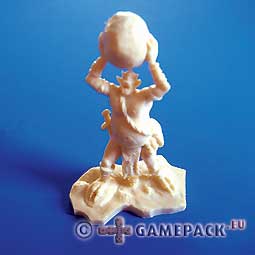 |
|
| x |
|
|
|
|
|
|
|
|
|
|
|
|
|
|
|
|
|
|
|
|
|
|
|
|
|
|
|
|
|
|
|
|
|
|
|
|
|
|
|
|
|
|
|
|
|
|
|
|
To finally discuss the visual quality of the game: it is simply wonderful! Every player color has different looking armies and fleets, and for example the Minotaur and the Kraken are modeled by stunning miniatures. We were used to Matagot-games being a visual pleasure for a while now, but it is good to find that Cyclades, like Giants before it, now shows that the game quality has also been increased to a higher and more enjoyable level.
© 2009 Ugur Donmez
Cyclades, Bruno Cathala & Ludovic Maublanc, Matagot / Asmodee, 2009 - 2 to 5 players, 13 years and up, 60-90 minutes
|
|
|
  |
|
|
|
|
|
|
|
|
|
|
|
|
|
|
|
|
|
|
|
|
|
|
|
|
|
|
|
|
|
|
|
|
|
|
|
|
|
|
|
|
|
|
|
|
|
|
|
  |
|
|
|
|
|
|
|
|
|
|
|
|
|
|
|
|
|
|
|
|
|
|
|
|
|
|
|
|
|
|
|
|
|
|
|
|
|
|
|
|
|
|
|
|
|
|
|
  |
Extremely well produced swift and uncomplicated game that could get unbalanced at times - so? |
  |
|
|
|
|
|
|
|
|
|
|
|
|
|
|
|
|
|
|
|
|
|
|
|
|
|
|
|
|
|
|
|
|
|
|
|
|
|
|
|
|
|
|
|
|
|
|
|
  |
Game never becomes interesting |
|
|
|
| x |
|
|
|
|
|
|
|
|
|
|
|
|
|
|
|
|
|
|
|
|
|
|
|
|
|
|
|
|
|
|
|
|
|
|
|
|
|
|
|
|
|
|
|
|
|
|
|
| x |
|
|
|
|
|
|
|
|
|
|
|
|
|
|
|
|
|
|
|
|
|
|
|
|
|
|
|
|
|
|
|
|
|
|
|
|
|
|
|
|
|
|
|
|
|
|
|
 |
|
|
|
|
|
|
|
|
|
|
|
|
|
|
|
|
|
|
|
|
|
|
|
|
|
|
|
|
|
|
|
|
|
|
|
|
|
|
|
|
|
|
|
 |
|
|
|
|
|
|
|
|
|
|
|
|
|
|
|
|
|
|
|
|
|
|
|
|
|
|
|
|
|
|
|
|
|
|
|
|
|
|
|
|
|
|
|
| x |
|
|
|
|
|
|
|
|
|
|
|
|
|
|
|
|
|
|
|
|
|
|
|
|
|
|
|
|
|
|
|
|
|
|
|
|
|
|
|
|
|
|
|
|
|
|
|
 |
|
|
|
|
|
|
|
|
|
|
|
|
|
|
|
|
|
|
|
|
|
|
|
|
|
|
|
|
|
|
|
|
|
|
|
 |
|
|
|
|
|
|
|
|
|
|
|
|
|
|
|
|
|
|
|
|
|
|
|
|
|
|
|
|
|
|
|
|
|
|
|